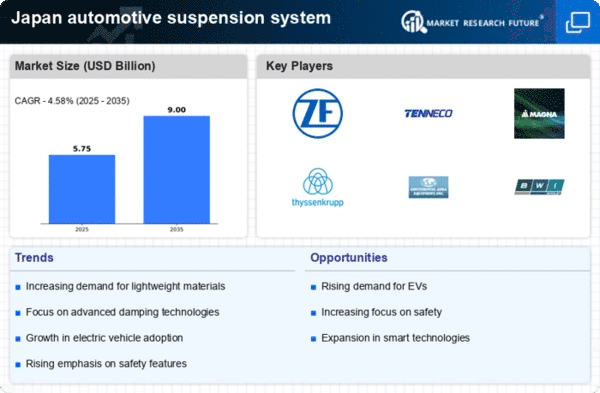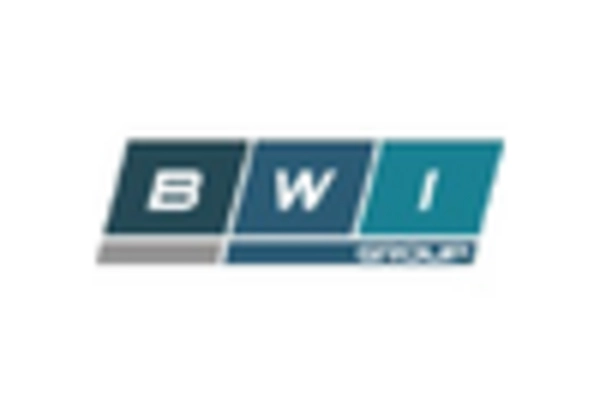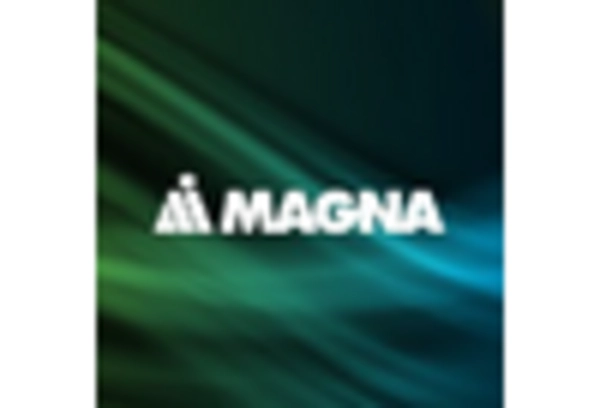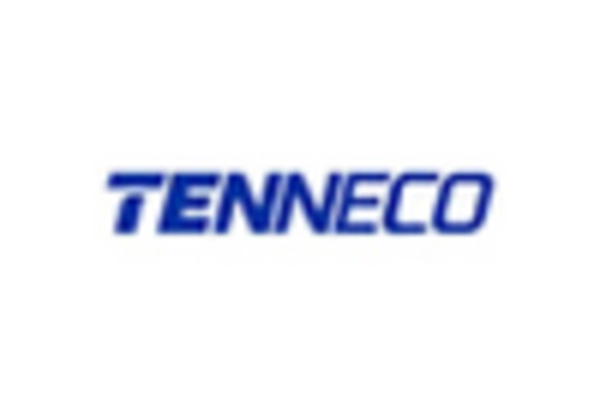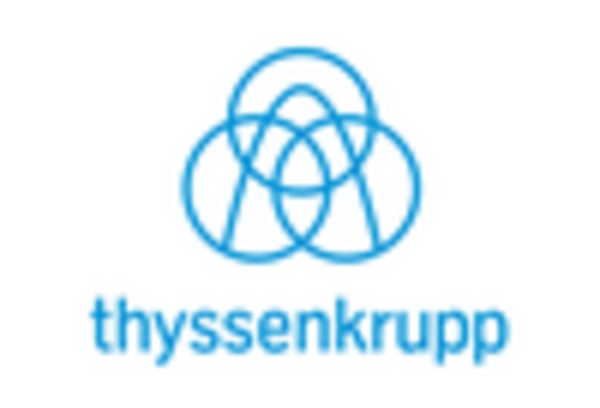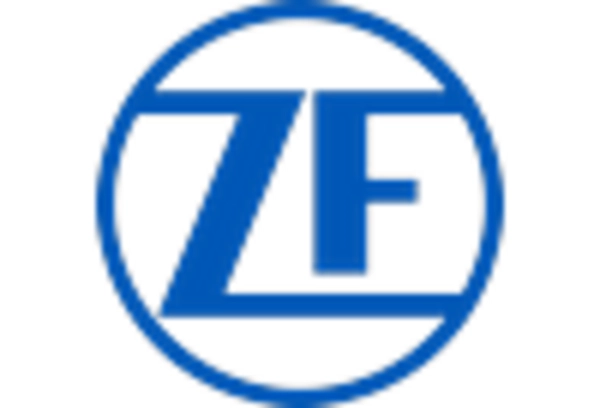Rising Demand for Electric Vehicles
The automotive suspension-system market in Japan is experiencing a shift due to the increasing demand for electric vehicles (EVs). As consumers become more environmentally conscious, the adoption of EVs is projected to rise significantly. In 2025, it is estimated that EV sales could account for approximately 30% of total vehicle sales in Japan. This transition necessitates advanced suspension systems that can accommodate the unique weight distribution and handling characteristics of electric vehicles. Consequently, manufacturers are investing in innovative suspension technologies to enhance ride comfort and stability, thereby driving growth in the automotive suspension-system market.
Government Regulations and Standards
The automotive suspension-system market in Japan is significantly influenced by stringent government regulations aimed at improving vehicle safety and environmental performance. The Japanese government has implemented various standards that require manufacturers to enhance the safety features of their vehicles, including suspension systems. Compliance with these regulations often necessitates the adoption of advanced suspension technologies, which can lead to increased production costs. However, this also presents an opportunity for innovation and growth within the automotive suspension-system market, as companies strive to meet these evolving standards.
Growth of the Automotive Aftermarket
The automotive aftermarket in Japan is witnessing substantial growth, which is positively impacting the automotive suspension-system market. As vehicle ownership increases, the demand for replacement parts and upgrades is also rising. In 2025, the aftermarket is expected to contribute approximately 25% of the total revenue in the automotive sector. This trend is encouraging manufacturers to develop high-quality suspension components that cater to both performance enthusiasts and everyday consumers. The expansion of online retail platforms further facilitates access to aftermarket products, thereby driving sales in the automotive suspension-system market.
Technological Advancements in Suspension Systems
Technological innovation plays a crucial role in shaping the automotive suspension-system market in Japan. The introduction of advanced materials and smart suspension technologies is enhancing vehicle performance and safety. For instance, the integration of electronically controlled dampers and air suspension systems is becoming increasingly prevalent. These systems allow for real-time adjustments based on driving conditions, improving ride quality and handling. As a result, the market is projected to grow at a CAGR of around 5% from 2025 to 2030, driven by the demand for enhanced driving experiences and safety features.
Increased Focus on Vehicle Comfort and Performance
Consumer preferences in Japan are increasingly leaning towards enhanced vehicle comfort and performance, which is driving demand in the automotive suspension-system market. As drivers seek smoother rides and better handling, manufacturers are compelled to innovate and improve their suspension offerings. The trend towards luxury vehicles, which often feature advanced suspension systems, is also contributing to this growth. In 2025, it is anticipated that the luxury vehicle segment will account for over 15% of total vehicle sales in Japan, further emphasizing the importance of high-quality suspension systems in meeting consumer expectations.


